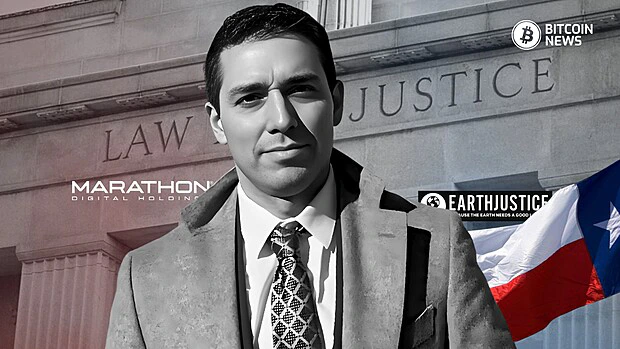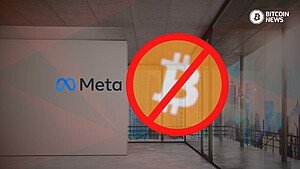In Granbury, Texas, a group of residents is taking a stand against Marathon Digital Holdings, the operator of a nearby Bitcoin mining facility. They claim that the constant noise generated by the mining operations has turned their lives into a nightmare.
Over two dozen locals have banded together to file a lawsuit, seeking relief from what they describe as “intolerably loud” and disruptive noise.
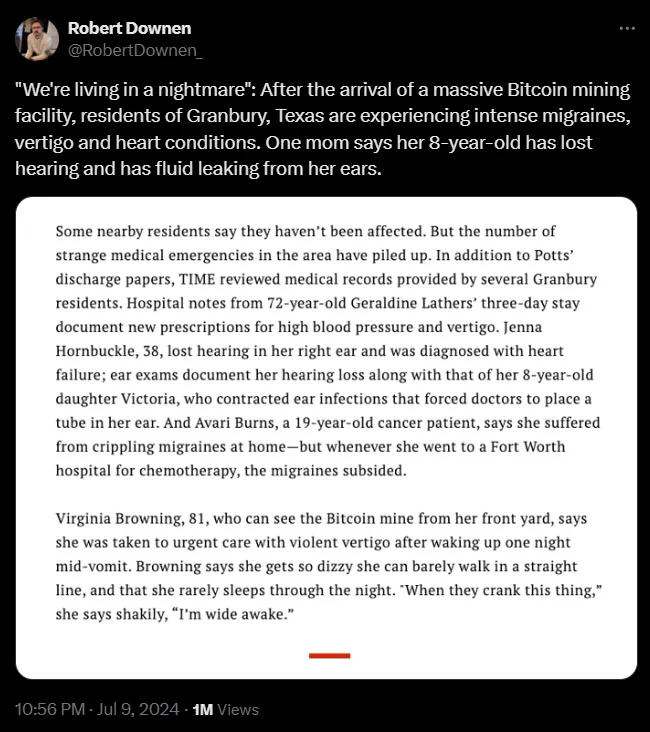
Bitcoin mining involves using powerful computers to solve complex mathematical problems in exchange for bitcoin rewards. This process generates significant noise due to the cooling fans required to keep the machines running around the clock.
The residents, part of a group known as Citizens Concerned About Wolf Hollow (CCAWH), allege that the noise from Marathon’s facility is causing “extreme discomfort and annoyance.”
The lawsuit, filed on October 4 in Hood County court, states that the persistent sounds have led to serious health issues for many residents, including fatigue, headaches, memory problems, and even hearing loss.
Rodrigo Cantú, Senior Attorney with Earthjustice, which is representing the residents, noted:
“The Marathon cryptomining operations are creating significant noise pollution in Granbury, resulting in serious health and quality of life impacts to the surrounding community.”
He added: “Residents’ homes are no longer the refuge that they should be. Marathon must take immediate action to effectively mitigate their noise pollution or shut down operations altogether.”
He highlighted that being repeatedly deprived of sleep or constantly dealing with background noise is an unreasonable burden.
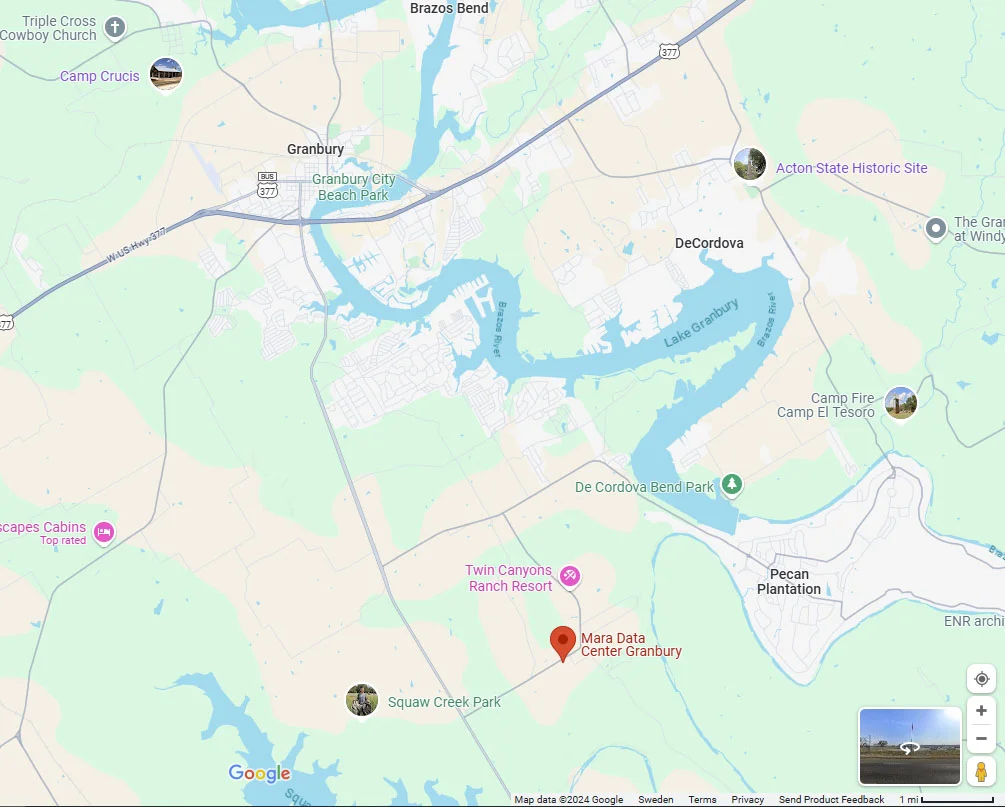
The plaintiffs are not just looking to be heard; they are demanding immediate action. Their lawsuit seeks a permanent injunction to stop Marathon from making what they describe as “unreasonable noise.”
They want the company to either mitigate the noise pollution or shut down its operations altogether.
In addition, they are asking for compensation for the loss of enjoyment of their properties, health issues, increased electricity bills, and the decline in property values caused by the mining operations.
Granbury resident Cheryl Shadden shared her frustration, stating:
“In such a short time, Bitcoin mining has completely altered our community, for the worse. The around-the-clock mining isn’t just driving up our electricity bills, it’s costing us our health. We feel trapped […] We aren’t asking for much, just for Marathon to take responsibility and restore our peace and well-being.”
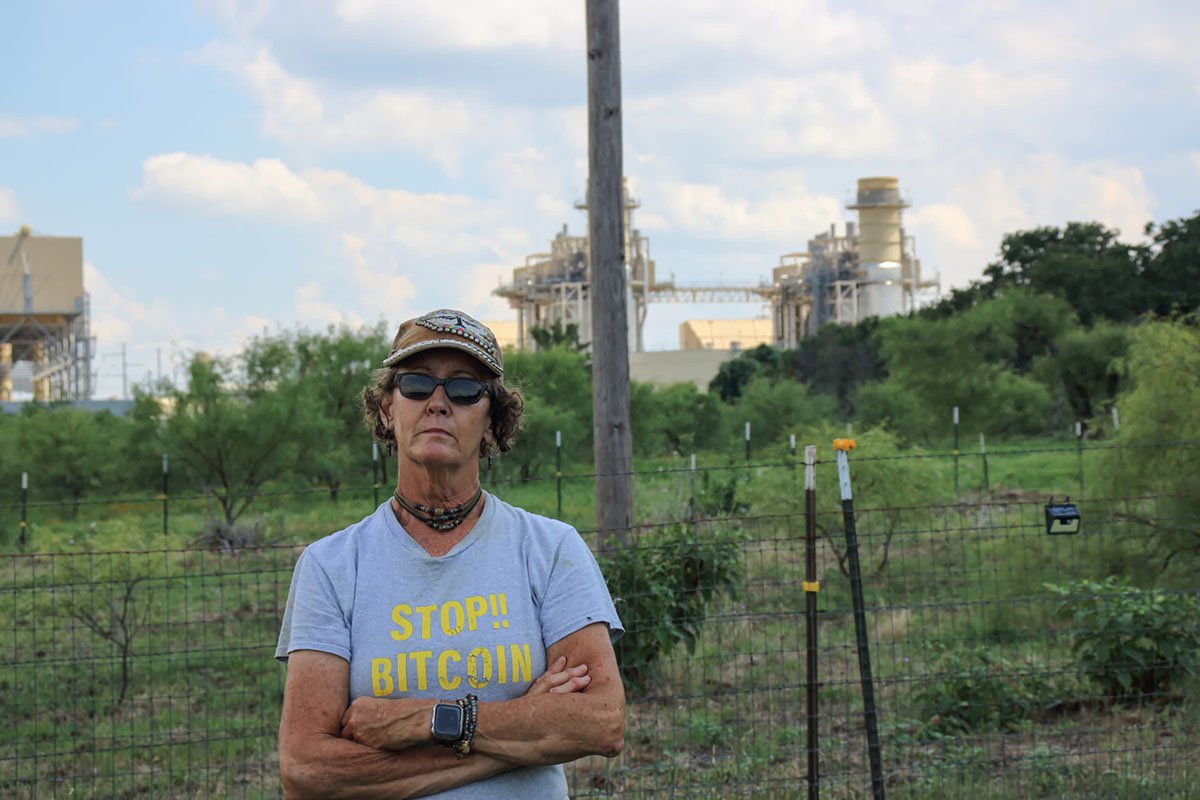
Residents have reported a range of health problems linked to the relentless noise. Permanent hearing loss, severe migraines, and chronic tinnitus are just a few of the issues they claim to suffer from due to the constant exposure to the mining operations.
They say that the noise has invaded their homes, shaking walls and causing sleepless nights. Some residents noted that even small noise barriers erected on-site did little to block the sound and may have even amplified it.
“Even in their own homes, residents can hear the MARA Cryptomine’s noise and feel its vibrations,” the lawsuit states.
It added, Marathon’s site “substantially interferes with Plaintiff Members’ private use and enjoyment of their properties.” As one resident put it, the noise is relentless, going on all day, every day, without any break, and it gets even louder at night.
The rapid growth of bitcoin mining in Texas has raised concerns about its impact on local communities and the state’s power grid. Following China’s ban on digital asset mining in 2021, many miners flocked to Texas, drawn by favorable regulations and low electricity rates.
As of April 2023, five of the ten largest Bitcoin mining facilities in the U.S. were located in Texas.
However, this boom has not come without consequences. Local residents are saying that they are now facing skyrocketing electricity bills and a decline in their quality of life.
Related: Bitcoin Mine Shutdown Spurs Power Price Hike in Norway
In contrast to what the residents are stating, numerous studies show that bitcoin mining helps stabilize power grids and bring down cost of electricity.
Cantú added: “Persistent exposure to this noise is detrimental for human health, animals, and the environment,” highlighting the need for urgent action to protect the community.
The local community is calling for lawmakers to take a closer look at the long-term implications of bitcoin mining, especially as the state approaches its next legislative session in early 2025.
As the lawsuit progresses, Marathon Digital has yet to respond publicly to the allegations and complaints from residents. Many locals are hopeful that the legal action will prompt the company to address their concerns and restore peace to their community.
“No corporation has the right to subject their neighbors to conditions that jeopardize their health and well-being. Marathon must reduce its noise pollution,” said Rebecca Ramirez, Associate Attorney with Earthjustice’s Gulf Regional Office.
Reportedly, Marathon Digital stated that it has already switched 30% of the computers at its Granbury site to quieter liquid immersion cooling, aiming for 50% by year-end.
A company spokesperson added that “sounds from our operations are within the normal range experienced every day from a variety of sources”, and the company is “not aware of any scientific basis to conclude that our operations are causing any health problems.”
The outcome of this lawsuit could set a precedent for other bitcoin mining facilities and the communities nearby.
As residents of Granbury fight for their health and well-being, the larger question remains: how can we balance the burgeoning world of bitcoin mining with the needs of local communities?
As this case unfolds, the spotlight will be on both Marathon Digital and the residents of Granbury, who are demanding the right to a peaceful and healthy living environment.
Their fight serves as a reminder of the real-world impacts of the bitcoin boom, revealing the tension between technological progress and community welfare.

